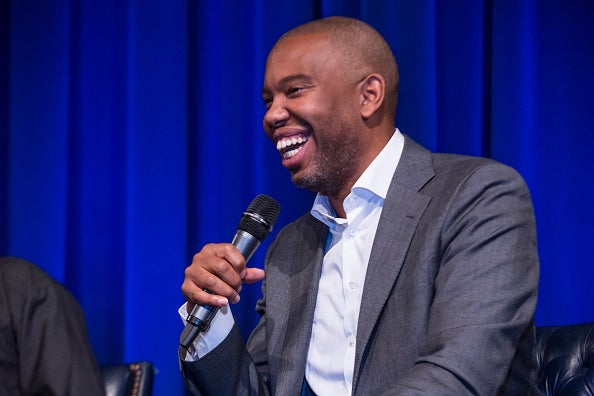
Ta-Nehisi Coates has 3000 – mostly White— faces packed into the Kings Theatre in Brooklyn on brisk fall evening. Excitement for the featured guest rippling through a sea of coffee-shop intellectuals, book enthusiasts and woke college students.
Coates, a journalist for The Atlantic and widely regarded as our generation’s James Baldwin, has packed the theater to discuss his latest effort, We Were Eight Years in Power: An American Tragedy. The 42-year-old’s popularity soared after publishing the now famous essay “The Case for Reparations” about race in America. Narrating this event is The Atlantic‘s editor-in-chief, Jeffrey Goldberg.
Goldberg’s leading first question, “Has the past several months vindicated your pessimism?” launched Coates into the explanation about his writing coming from a place of historical reference and evidence before emotion. And though his writing is often critiqued as such, he isn’t trying to be a “downer” but just honest.
In his most recent article “The First White President”, Coates deconstructs Trump’s rise to the presidency as White America’s knee-jerk reaction to Barack Obama’s eight years of power in the White House. The wave of “whiteness” that ushered Trump into the Oval Office was made possible in large part by the available contrast of Barack Obama’s “blackness.”
When asked about the difference between his books Between the World and Me, (a memoir to his son) and We Were Eight Years in Power, Coates told ESSENCE, “Every time you write a book you have to learn to write. You have to learn how to write that book… figure out what it is.”
In his latest, Coates ties together eight different essays comprised over the course of the Obama administration. The in-depth racial commentary on America also chronicles Coates’ own journey through voice, idea and identity as a writer.
In the course of the discussion, Goldberg asked Coates, “Why do you think that so many White people look to you to give them hope? What is it that you symbolize?”
Coates noted that this new book is not a place of hope but a place for context. And as for “hope”— “you go to your pastor for that.”
